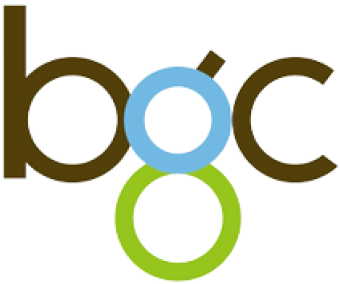As we step into 2024, the work landscape is undergoing transformative changes. The aftermath of the global pandemic, technological advancements, and evolving societal values are reshaping how we think about employment.
In this article, we look at the emerging labour trends of the year, ranging from remote work to technology and the effect of all of these trends on recruitment.
Emerging Labour Trends in 2024
Remote Work
Remote work, initially a response to the pandemic, is evolving into hybrid work arrangements in many organisations. This shift recognises the advantages of remote work, like access to a broader talent pool and reduced office expenses, while acknowledging the value of in-person interactions.
In 2024, we foresee companies embracing hybrid models that combine the flexibility of remote work with the collaborative benefits of office environments. This approach allows for a more balanced work life, offering employees the freedom to work from home while maintaining the option for face-to-face meetings and teamwork when necessary.
To successfully implement these hybrid work arrangements, companies need to start investing in effective communication tools that bridge the gap between remote and in-office work. They are also refining their policies to support work-life balance, ensuring employees are productive and satisfied regardless of location.
Additionally, the focus is on developing robust remote team management techniques that cater to the diverse needs of a distributed workforce.
Diversity and Inclusion
The importance of diversity and inclusion (D&I) in the workplace has taken on a heightened significance in Singapore. The city-state, known for its multicultural fabric, is seeing a growing recognition of D&I as a moral imperative and a critical business strategy.
In fact, studies have shown that 7 in 10 Singaporean employers surveyed recognise the importance of DEI. To help companies make D&I a part of organisational work culture, the Singaporean Ministry of Manpower has introduced initiatives like OneWorkplace.sg to improve integration.
As awareness rises amongst employees and more begin making D&I initiatives a part of their search criteria, companies will likely act following this shift by introducing diversity and inclusion programmes.
Increased Demand for Tech-Savvy Employees
Technology integration will continue redefining the workplace as we enter 2024, going beyond automation to enhance human work and significantly fostering efficiency and innovation. As a global tech hub, there is no doubt that the demand for employees adept at new technologies will continue rising.
This increasing reliance on technology across various industries means that companies are not just looking for IT specialists; they are seeking professionals in all areas who are technologically proficient.
This trend is pushing companies to prioritise tech-savviness in their hiring criteria. Roles in marketing, project management, customer service, and many others now often require a degree of technical knowledge, whether it’s data analytics, digital marketing tools, or customer relationship management systems. The ability to adapt to and leverage new technologies is becoming a critical factor in the selection process.
Moreover, organisations are recognising the need for a workforce that can not only use technology but also understand its impact on business and operations. This requires a blend of technical know-how and strategic thinking.
As a result, recruitment strategies are evolving to include assessments that gauge a candidate’s aptitude for learning and adapting to new technologies, as well as their ability to apply technological solutions creatively and effectively.
Rise of the Gig Economy
The gig economy is rapidly expanding, offering flexibility and autonomy to workers and businesses alike. This trend is marked by a shift from traditional full-time roles to freelance, contract, or part-time positions. Because of this, we can expect more professionals in Singapore and across Asia to opt for gig work, valuing the freedom it offers.
For employers, shifting towards gig-based or contract workers also has its fair share of benefits. In times of economic uncertainty, companies tend to become more cautious with their expenditures.
Hiring contract-based employees allows businesses to manage their workforce more flexibly, scaling up or down as needed without the long-term financial commitments associated with permanent staff.
This approach not only helps in optimising costs but also enables companies to tap into specialised skills on an as-needed basis, adding to their agility and responsiveness in a rapidly changing market.
Moreover, the rise of project-based work and short-term contracts in sectors like IT, marketing, and consultancy in Singapore reflects this growing preference, as businesses seek to align their workforce more closely with project cycles and fluctuating market demands.
Emphasis on Employee Well-being
Employee well-being has become a priority for businesses. Recognising the link between employee health, productivity, and retention, companies in 2024 are investing more in their employees’ mental, emotional, and physical health.
This trend includes initiatives like comprehensive health benefits, mental health days, wellness programs, and a focus on creating a supportive work culture that values work-life balance.
In addition, organisations are increasingly incorporating flexible work arrangements as part of their well-being strategies. This flexibility allows employees to manage their personal and professional responsibilities better, reducing stress and improving job satisfaction.
There is also a growing emphasis on providing resources and training for managers to help them support their team’s mental health, recognising that leadership plays a crucial role in nurturing a healthy workplace.
Furthermore, companies are actively seeking employee feedback to continually adapt and improve their well-being initiatives, ensuring they are effectively meeting the needs of their diverse workforce.
How Organisations can Face Up to Changing Recruitment Trends
Category | Sub-Category | Details |
For Employers | Embracing Flexibility in Work Arrangements | Consider implementing a mix of remote, in-office, and hybrid work models. Develop clear policies, invest in communication tools, and training managers to lead distributed teams effectively. |
Building a Diverse and Inclusive Culture | Create policies and practices that promote diversity in hiring, offering training programs on inclusivity, and establishing a workplace culture where all employees feel valued and respected. | |
Investing in Technology and Training | Stay updated with technological advancements relevant to your industry. Invest in training programs for employees to upskill and adapt to new technologies, ensuring your workforce remains competitive and efficient. | |
Leveraging the Gig Economy | Adapt to the gig economy by offering flexible, project-based roles. Develop strategies to manage and integrate gig workers into your teams, focusing on clear communication, fair compensation, and legal compliance. | |
Prioritizing Employee Well-being | Implement comprehensive health benefits, mental health initiatives, and wellness programs. Foster a supportive work culture that values work-life balance and offers flexible arrangements to accommodate personal needs. | |
For Employees | Adapting to Hybrid Work Environments | Learn to manage work-life balance effectively in a hybrid setting. Develop skills for remote communication and collaboration, and create a conducive work environment at home while staying connected with in-office teams. |
Enhancing Skills and Embracing Lifelong Learning | Continuously seek opportunities to upskill, especially in areas of digital literacy and soft skills. Embrace online courses, workshops, and training programs offered by employers or external institutions. | |
Navigating the Gig Economy | For those considering gig work, research market demands and necessary skills. Develop a strong personal brand, learn to market your skills effectively, and manage finances and time as a freelancer. | |
Advocating for Inclusivity and Well-being | Actively engage in workplace D&I initiatives and well-being programs. Voice your needs and suggestions to employers and participate in programs that enhance the overall workplace environment. | |
Future Outlook and Preparedness | Staying Informed About Industry Trends | Regularly follow industry news, attend webinars and conferences, and network within professional circles to stay informed about the latest trends and changes in the job market. |
Building Resilience and Flexibility | Cultivate a mindset that is open to change and adaptable to new working conditions. Develop skills that are transferable across roles and industries, and be prepared to pivot as new opportunities and challenges arise. |
Finding candidates who align with your organisation’s culture is more crucial than ever for building a successful and cohesive team.
BGC — Your Partner in Recruitment
At BGC, we understand the nuanced demands of the contemporary job market. We don’t just focus on a candidate’s skills; we prioritise finding individuals whose values and work styles resonate with an organisation’s ethos.
This approach is vital in an era where cultural fit is as important as technical competency. Our expertise lies in recognising and aligning these subtle yet critical aspects, ensuring that we connect organisations with candidates who possess the right skills and seamlessly integrate into the company’s culture.
By partnering with us, organisations can confidently navigate the changing tides of the job market, secure in the knowledge that they are building a team not just for today but for the future landscape of work.




